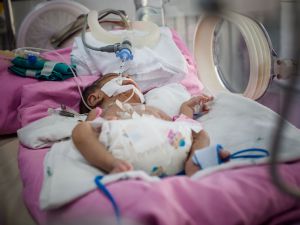Dr Sara Watkin writes: Today (17 November) is World Prematurity Day and here in Cayman we punch well above our meagre size in terms of the standard of care provided to preterm infants born on the island. Every year, 15 million babies are born prematurely worldwide and in Cayman we definitely have our fair share.
Around 1 in 10 births (before 37 weeks) is preterm but there are many factors that can increase the possibility, including multiple births, smoking, diabetes, anaemia and maternal health in general.
Being born too soon can create a host of challenges for the baby, with respiratory problems being the most common. Preterm babies are thrust into the world before their full development has taken place and they are frequently delivered by caesarean section and thus denied the distinct benefits of labour and normal vaginal birth. If you enter preterm labour caesarean section often can’t be avoided but it is also why, unless there are specific medical reasons otherwise, international guidelines stipulate normal birth is to be preferred and that sections should not be performed prior to 39 weeks and ideally not before the onset of labour.
Preterm birth complications are the leading cause of both death and disability among children under 5, with the frequency and severity both increasing the more preterm the infant. However, with advances in care, we are seeing infants survive from 23 or 24 weeks gestation, even though ongoing health problems are common in these smallest infants. However, from 28 weeks onwards, with the right care at and from birth, outcomes are much better and we have many graduates from the neonatal unit here in George Town. Only this week I had the pleasure of discharging from hospital Najanna Llewellyn, born at 27 weeks gestation and now enjoying her first few days of normal home life.
In Cayman, we have an excellent neonatal unit located within maternity at George Town Hospital. We are lucky to have some world-class neonatal nurses, who are critical to a successful outcome following preterm birth. Successful care involves both the careful nursing of the infant, sometimes over many weeks, as well as expert medical care by a neonatologist (preterm baby doctor). Because Cayman is so small, with only around 700 births in total each year, we cannot sustain multiple neonatologists, and so here, neonatal care is also provided by certain paediatricians with neonatal skills.
Neonatology is a highly technical, intensive care specialty in which infants can require round-the -clock, hands-on care. This is where our size becomes the limiting factor in what we can look after. The majority of babies of 28 weeks gestation or more are cared for on the island but many below this are transferred, ideally before birth, to Miami, Fort Lauderdale and other US cities. However, we do care for smaller ones when they cannot be transferred, either because they have been denied entry to the US or because insurance is insufficient. We then do our very best as a team.
To achieve the best possible outcomes, regardless of transfer out or on-island care, the resuscitation, early care and assessment of preterm infants are critical success factors. Being born in George Town Hospital, where the neonatal unit is located, is important, as is providing a careful balance of interventions like ventilation or certain drugs. Timing is a critical issue. Nature isn’t helpful, as we frequently don’t know in advance who will go into preterm labour, when and how long we might have to get organised!
To mark World Prematurity Day, the Health Services Authority have organised an educational talk for parents and carers, which I am delivering, as well as free developmental checks for ex-preterm infants yet to reach 18 months of age. This is vital to ensure that ongoing problems are identified early and then managed, as well as to ensure that our neonatal graduates reach their full potential developmentally. We should be very proud of our neonatal care here in Cayman but World Prematurity Day also acts as a reminder of the importance of the right care, at the right time, by the right team of people, whilst always striving to improve that care and thus the outcomes for our tiniest deliveries.
Submitted by Dr Sara Watkin, consultant neonatologist and paediatrician


